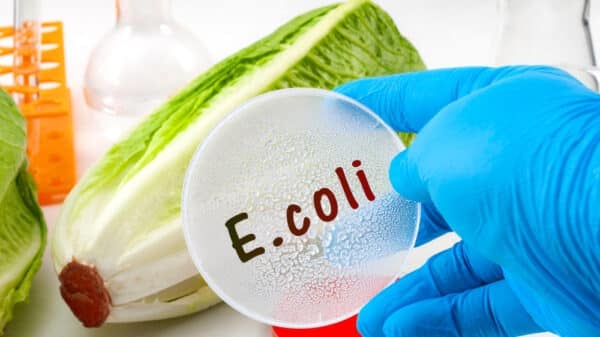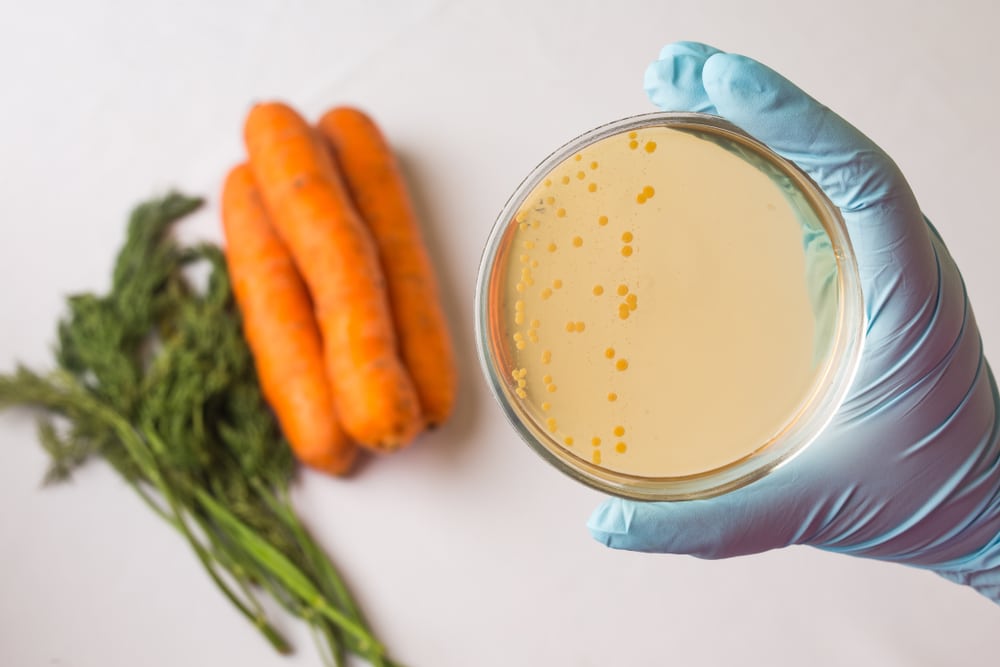Multiple brands of carrots have been pulled from store shelves due to a concerning outbreak of E. coli that has resulted in at least 39 reported illnesses and, tragically, one death. The Food and Drug Administration (FDA) has confirmed that this outbreak is linked to whole-bagged and baby carrots distributed by Grimmway Farms, the largest carrot producer in the world. With their products sold under various organic brand names—including Cal-Organic Farms and Bunny-Luv—many consumers might unknowingly have these affected carrots in their homes. If you tend to grab a bag of baby carrots for your snack or meal prep, it’s crucial to take a moment to check your refrigerator.
The FDA’s extensive investigation has revealed that these carrots were predominantly sold in stores from mid-August until late October. So, if you’ve stocked up during that time, it’s important to verify the packaging. The Centers for Disease Control and Prevention (CDC) has identified several brands that are included in this recall. If you recently purchased baby carrots with best-by dates ranging from September 11, 2024, to November 12, 2024, it’s time to inspect those bags.
The brands most commonly implicated in this recall include:
– 365
– Bunny Luv
– Cal-Organic
– Compliments
– Full Circle
– Good & Gather
– GreenWise
– Grimmway Farms
– Marketside
– Nature’s Promise
– O-Organic
– President’s Choice
– Raley’s
– Simple Truth
– Sprouts
– Trader Joe’s
– Wegmans
– Wholesome Pantry
If you find that your bag of carrots doesn’t have a best-by date, CDC guidelines suggest avoiding these brands entirely while the recall is active.
Reported cases linked to this outbreak have been seen across numerous states, including Arkansas, California, Colorado, Massachusetts, Michigan, Minnesota, Missouri, North Carolina, New Jersey, New York, Ohio, Oregon, Pennsylvania, South Carolina, Texas, Virginia, Washington, and Wyoming. It’s a nationwide issue, and it emphasizes the importance of food safety and being informed as a consumer.
What is E. coli?
Escherichia coli, commonly referred to as E. coli, is a type of bacteria present in the intestines of many animals and humans. While most strains are harmless, certain ones can cause severe health issues. If you’re wondering how someone might contract the harmful strains, it often happens through the consumption of tainted food or water or contact with infected animals or environments.
Symptoms of an E. coli infection can mimic other gastrointestinal problems, including diarrhea, cramps, abdominal pain, and nausea. One particularly alarming warning sign is bloody diarrhea, which should prompt immediate medical attention. According to Darin Detwiler, a well-respected expert in food safety at Northeastern University, individuals most at risk include young children, the elderly, pregnant women, and anyone with a compromised immune system. For those in these vulnerable groups, prompt treatment matters—a delay could lead to serious complications.
How do carrots become contaminated with E. coli?
In talking about how carrots can become tainted with E. coli, Detwiler notes that there are numerous possible pathways. “This can occur due to contaminated irrigation water or cross-contamination,” he explains. For instance, farm workers may unintentionally cross-contaminate crops by not washing their hands properly, or perhaps the conditions during harvesting and storage aren’t up to snuff.
He highlights that baby carrots, in particular, carry a heightened risk of contamination. Contrary to what the name might suggest, they aren’t simply smaller carrots; they’re typically larger carrots that have had their less appealing parts removed. This processing can create more chances for contamination compared to whole carrots that have just been pulled from the earth. And since most people eat baby carrots raw, this raises the stakes even higher; without cooking, there’s no reliable way to kill off pathogens like E. coli.
What to do if you have these carrots in your kitchen
If you’ve found any recalled carrots lurking in your fridge, the CDC strongly advises against eating them. It’s best to dispose of them immediately to avoid any risk to your health. Don’t forget to sanitize any work surfaces or utensils that might have been in contact with those carrots; use hot, soapy water or a dishwasher to clean them thoroughly. If you’ve eaten any of the recalled carrots and are feeling unwell, especially if you’re experiencing gastrointestinal symptoms, it’s crucial to consult your healthcare provider without delay.
In the hustle and bustle of daily life, it’s easy to overlook something like a simple package of carrots, but being proactive can make a world of difference. Your health and safety should always be a top priority, and paying attention to recalls is a big part of that. Take the time to check your pantry, and don’t hesitate to speak up if something doesn’t feel right. Remember, your well-being comes first!

































